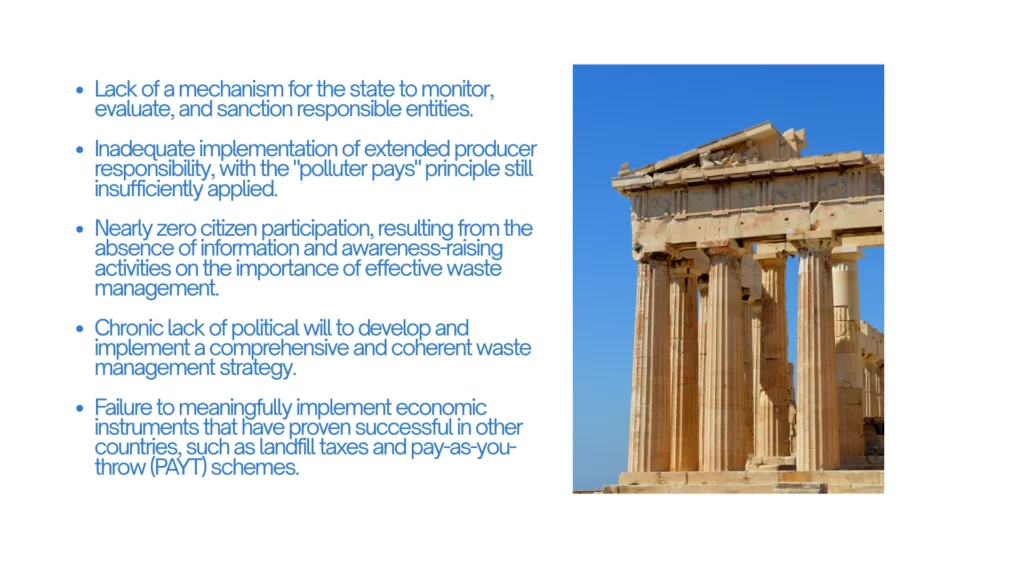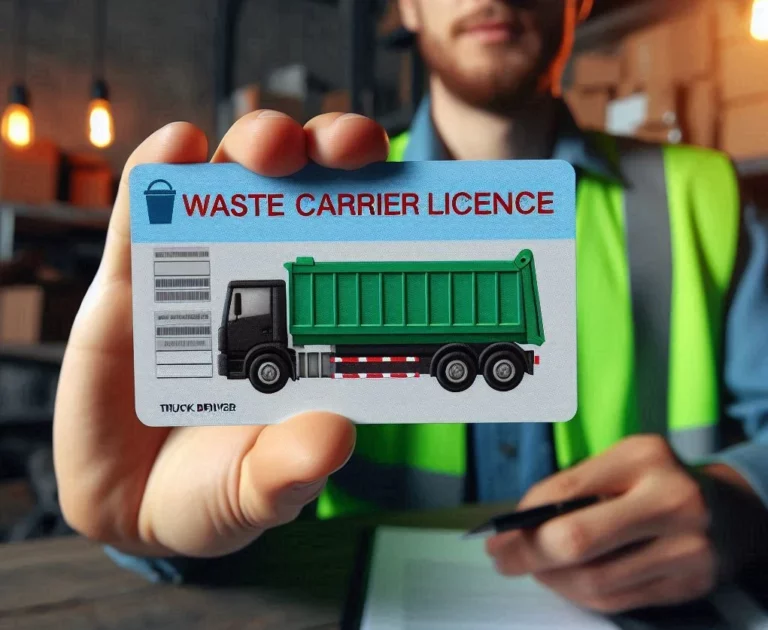What you need to know about waste management in Greece
Greece has faced longstanding challenges in managing municipal solid waste effectively. Despite efforts to align with European Union directives, issues such as illegal landfills and inadequate recycling infrastructure persist. This article delves into the current state of waste management in Greece, the legal repercussions of non-compliance, and the procedures for obtaining waste transport permits.
Do you want to obtain Greek transport permit? Contact us:
e.nadolna@ekologistyka24.pl, +48 881 045 376
j.blazewicz@ekologistyka24.pl, +48 500 867 153
Current state of waste management in Greece
According to the WWF Greece report published in June 2024, Greece’s waste management system continues to lag behind European standards. In 2019, the per capita production of municipal waste stood at 524 kilograms per inhabitant, ranking 12th worst in the EU. Between 1995 and 2019, waste production increased by almost 73%, placing Greece in the 5th worst place in theEU.
The recycling rate in Greece remains low, with only 21% of municipal waste being recycled, while 78% ends up in landfills and 1% is incinerated. This stands in stark contrast to the EU’s overall recycling rate of 48% in 2019, with 24% being landfilled and 27% incinerated.
The National Waste Management Plan (NWMP), published in 2020 and partially revised in 2023, focuses almost exclusively on the lower levels of the waste management hierarchy. It introduces waste incineration as the primary method of waste management and calls for numerous waste treatment facilities that require guaranteed waste volumes and long-term contracts. This approach risks locking waste management practices into costly and inefficient methods for the foreseeable future.
Furthermore, the WWF report highlights several systemic issues hindering progress:

These challenges underscore the need for a shift towards a more sustainable and just waste management system in Greece.
Legal framework and penalties for illegal waste transport in Greece
Greece’s legal framework for waste management is primarily governed by Law 4042/2012, which transposes EU Directive 2008/98/EC into national legislation. This law outlines the responsibilities of waste producers and transporters, emphasizing the need for proper documentation and adherence to environmental standards.
Violations of waste transport regulations can lead to severe penalties. For instance, unauthorized waste shipments or failure to comply with documentation requirements can result in substantial fines ranging from 500€ to 1.000.000 €, depending on the severity and nature of the violation.
The European Court of Justice has imposed fines on Greece itself for non-compliance with waste management directives. In December 2014, Greece was ordered to pay a lump sum of €10 million and a daily penalty of €30,000 for failing to close illegal landfills, highlighting the financial implications of inadequate waste management practices.
Waste transport permit system in Greece
Transporting waste within Greece requires obtaining a specific permit from the Ministry of Environment and Energy. Unlike some countries where permits cover extended periods or multiple transports, the Greek system issues permits for individual transport operations. Each permit is valid solely for the specific transport it was issued for and expires upon completion of that transport.
Key aspects of the Greek waste transport permit:
- Validity period: The permit is valid only for the duration of the specific transport operation.
- Scope: Each permit pertains to a single transport activity and cannot be used for multiple or recurring transports.
- Application requirements: Applicants must provide detailed information about the waste type, quantity, origin, destination, and the transport method.
- Compliance: Transporters must adhere to all national and EU regulations regarding waste handling and documentation.
Failure to obtain the necessary permit or non-compliance with its terms can lead to legal penalties. These include fines and potential suspension of transport activities.
How Waste Transport Solutions can help
Navigating Greece’s regulatory environment for waste transport can be a daunting task. Especially for companies unfamiliar with the nuances of Greek law. From short-term permits tailored to each shipment to complex documentation requirements and strict compliance standards, transporting waste into or within Greece demands a thorough understanding of the system.
That’s where Waste Transport Solutions steps in.
We specialize in helping companies obtain the necessary permits to legally and efficiently transport waste in Greece. We offer a comprehensive, hassle-free service that includes application support, regulatory guidance, and real-time assistance tailored to your needs. With our support, you can focus on logistics while we handle the legal groundwork.
Let us simplify the process and ensure your operations remain fully compliant. Reach out to us today to learn how we can support your waste transport goals in Greece.







